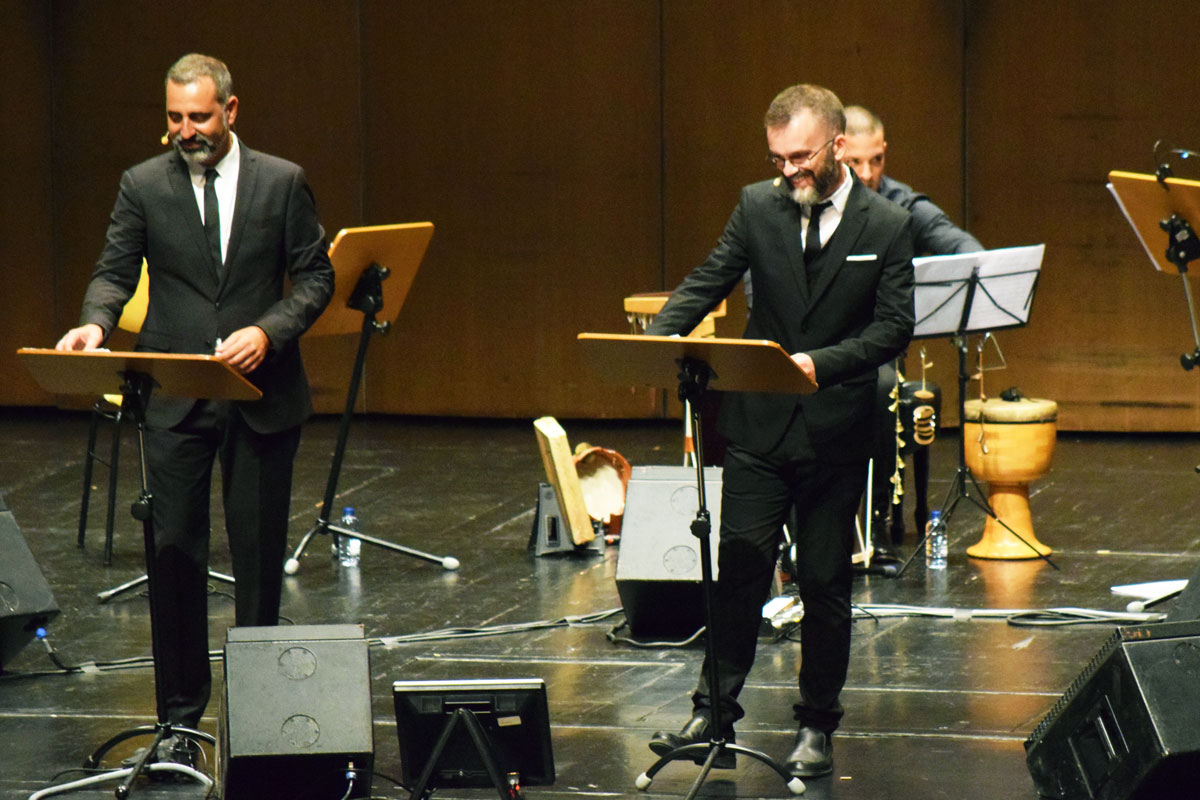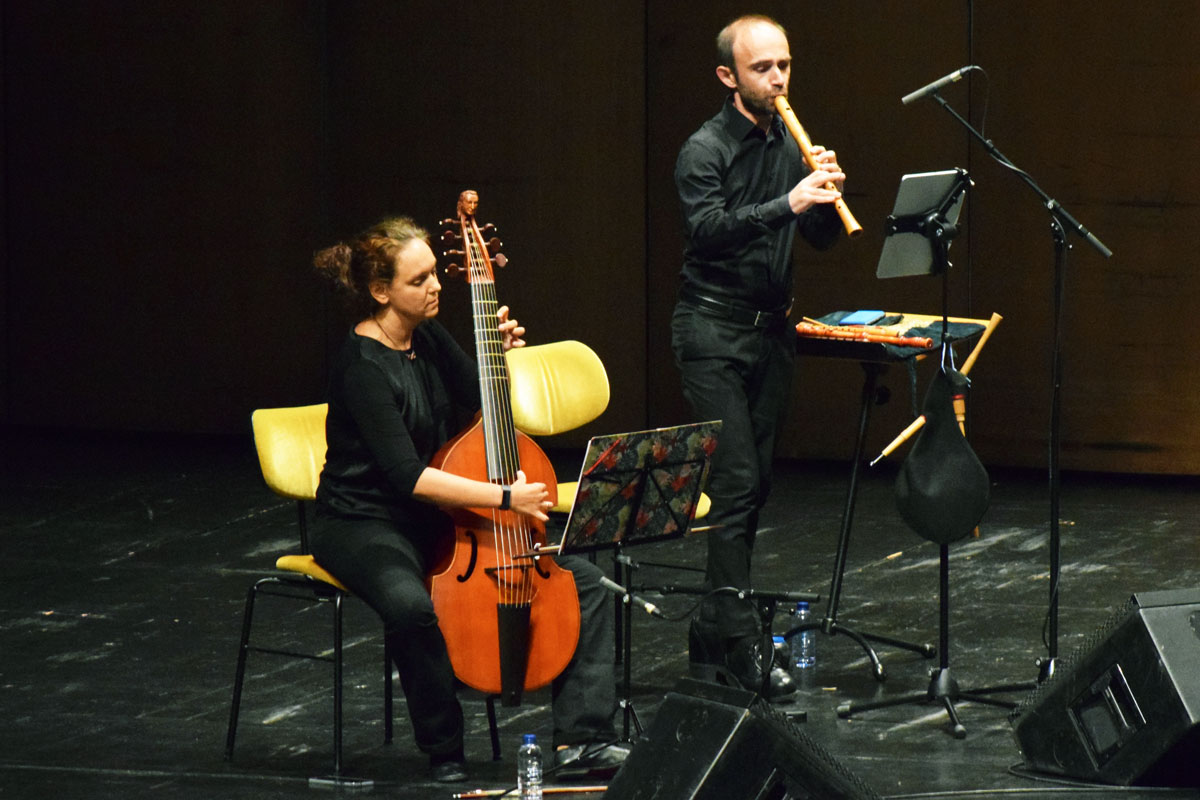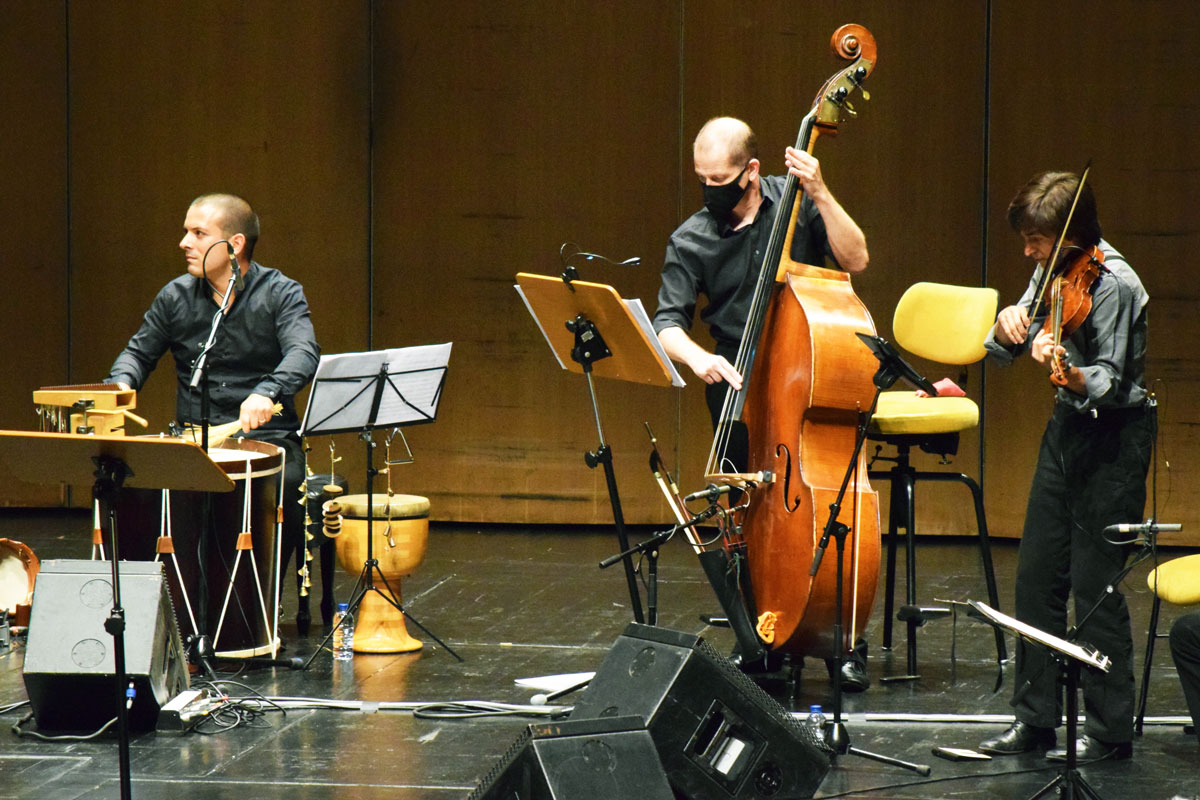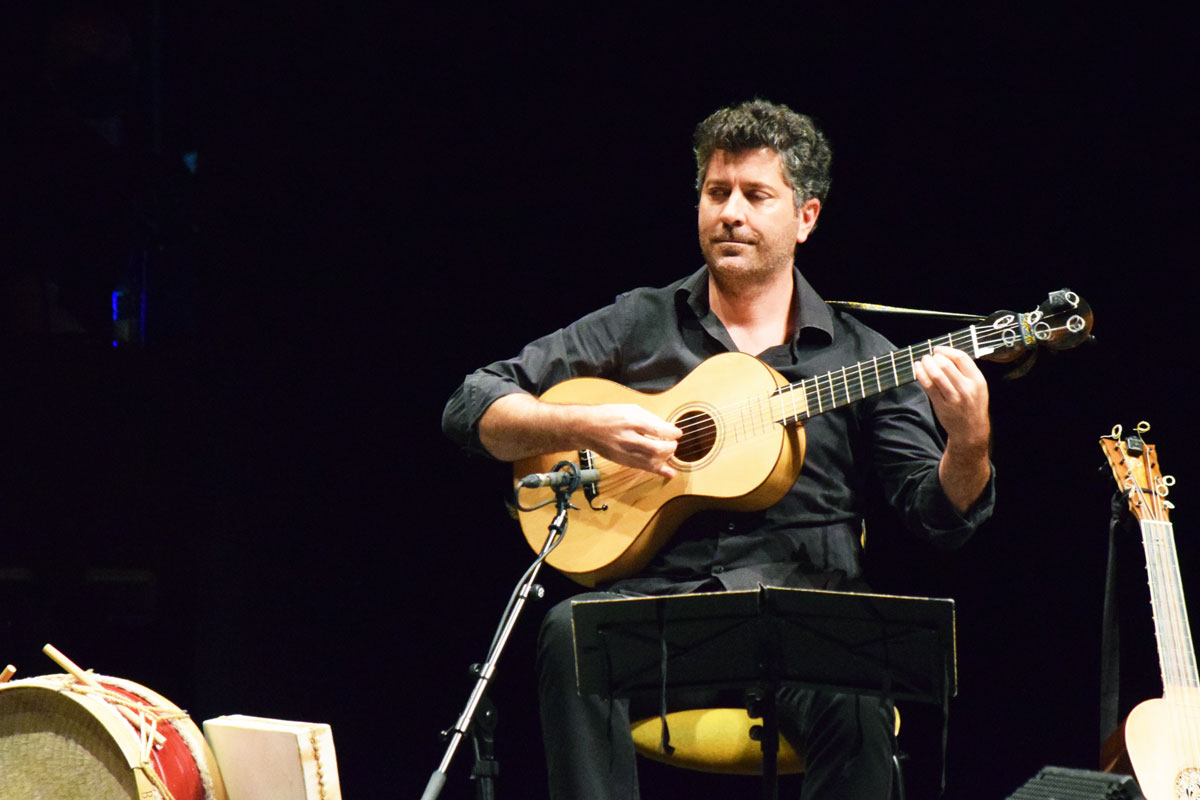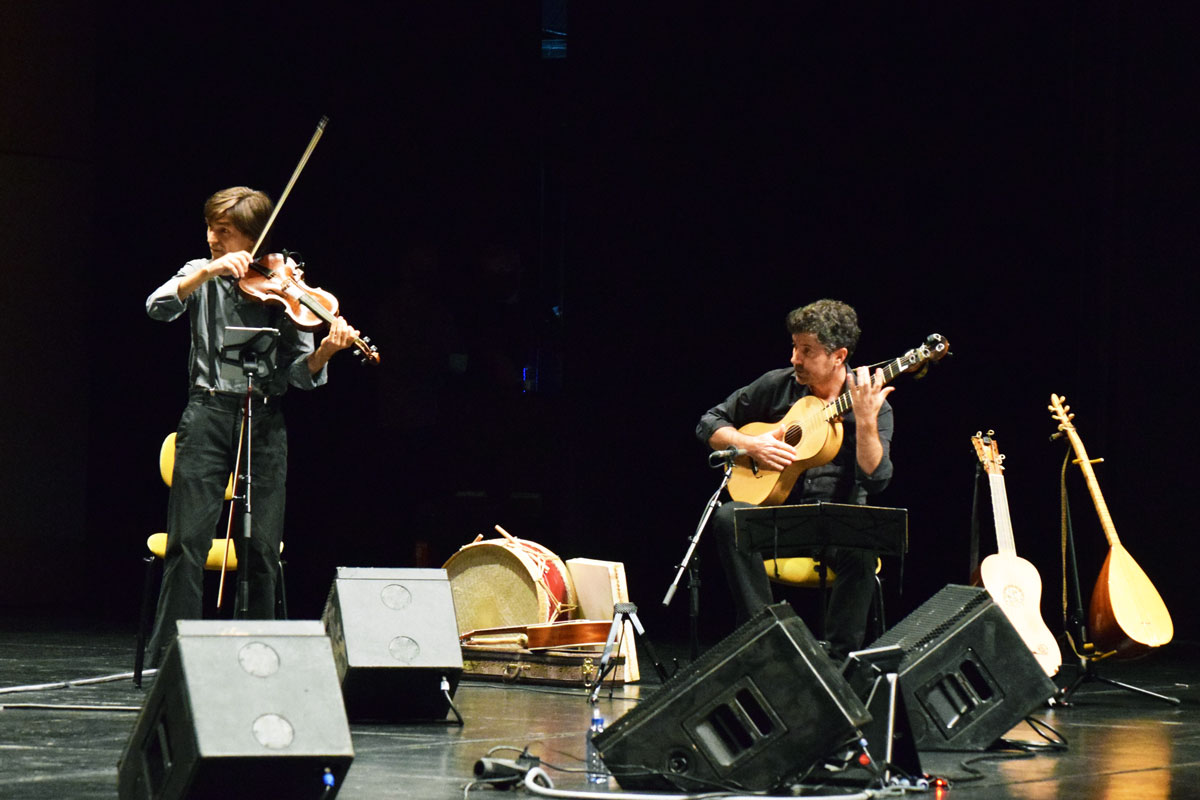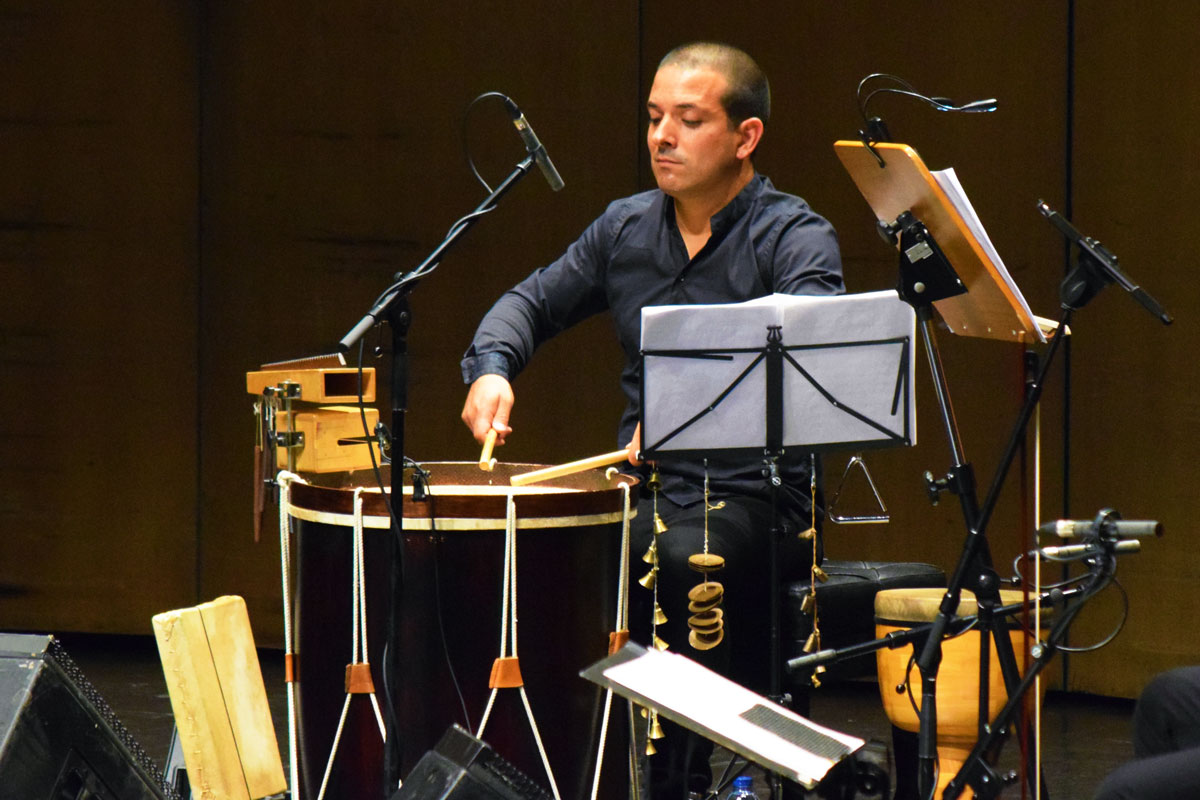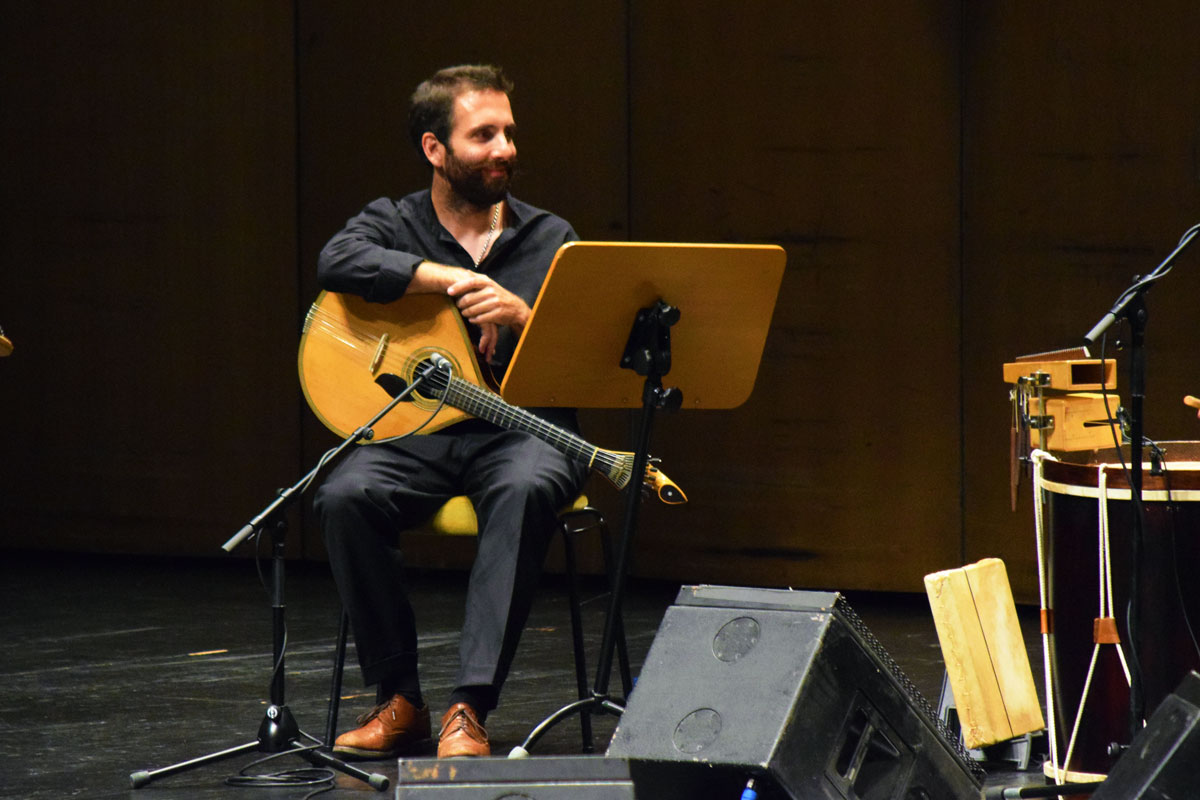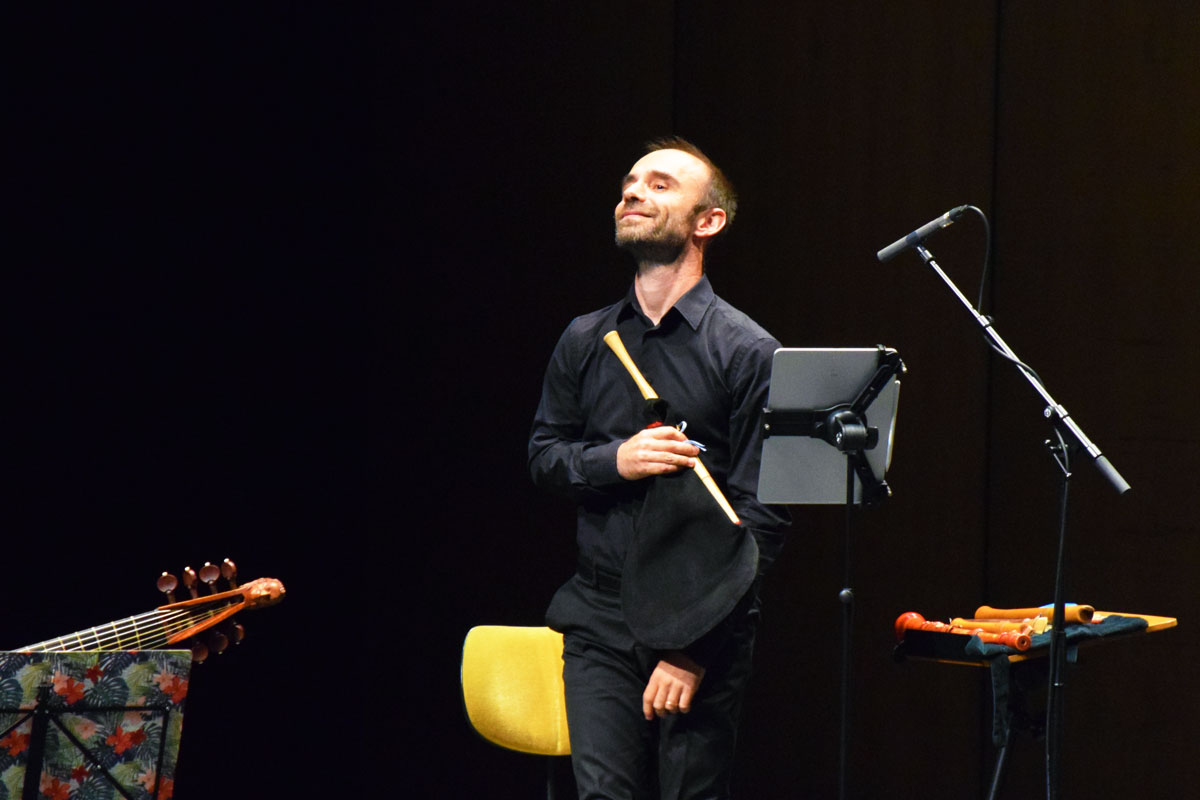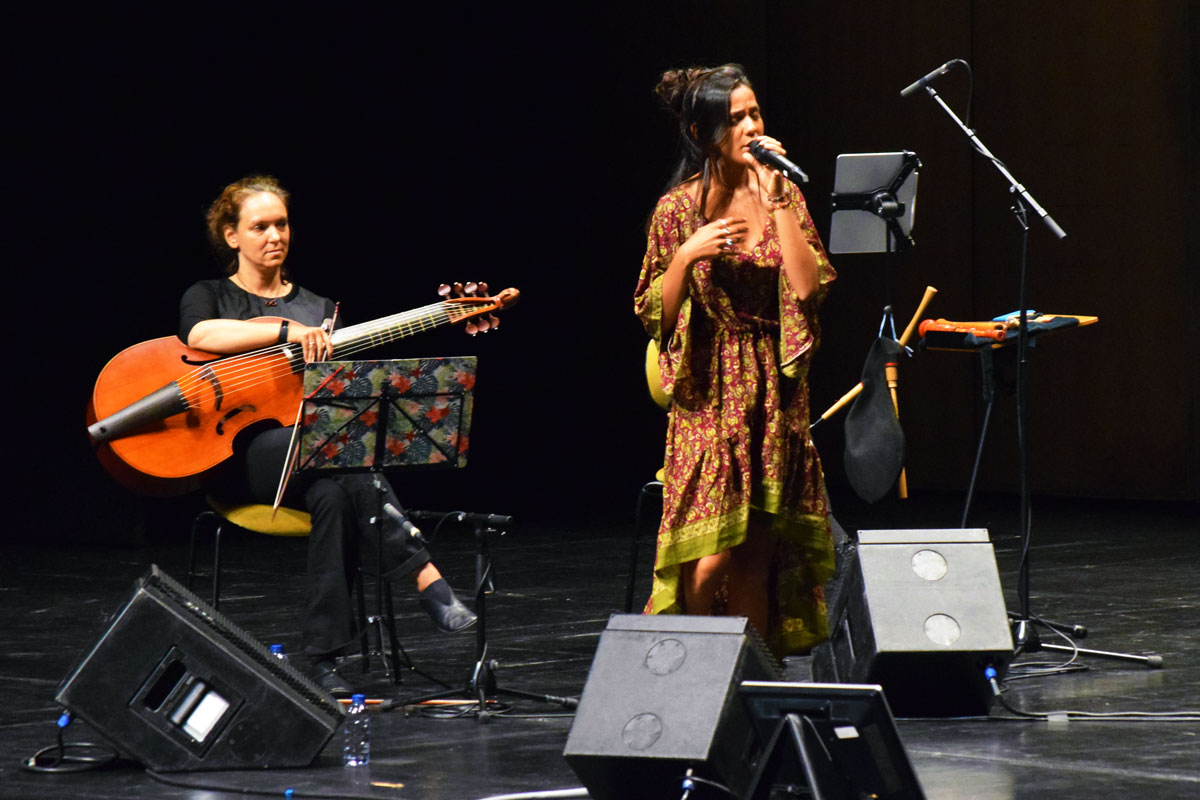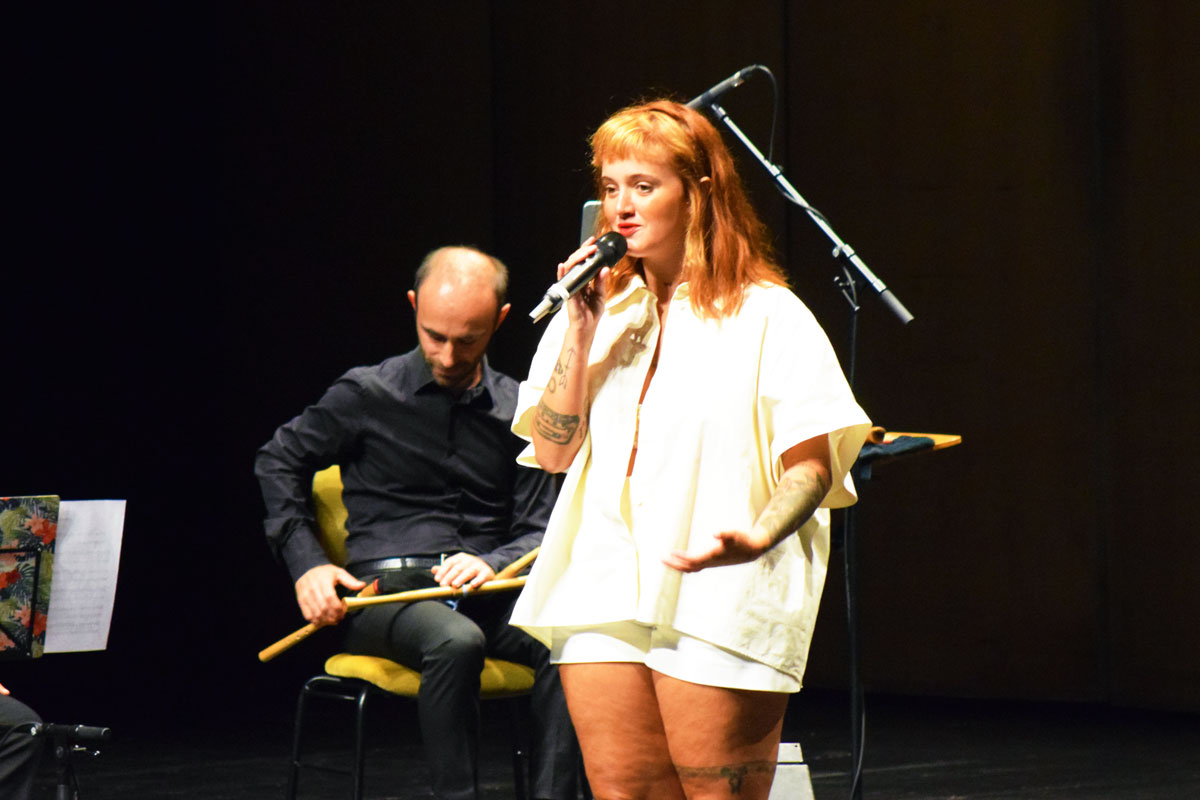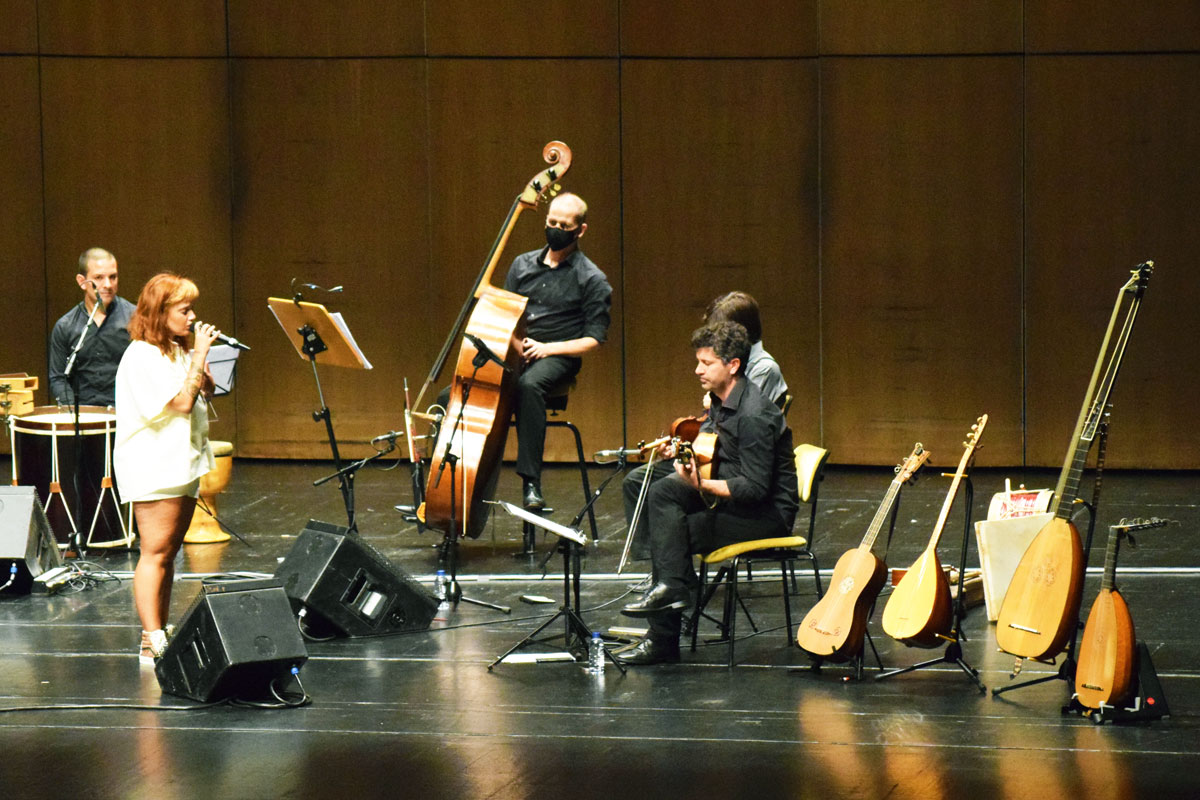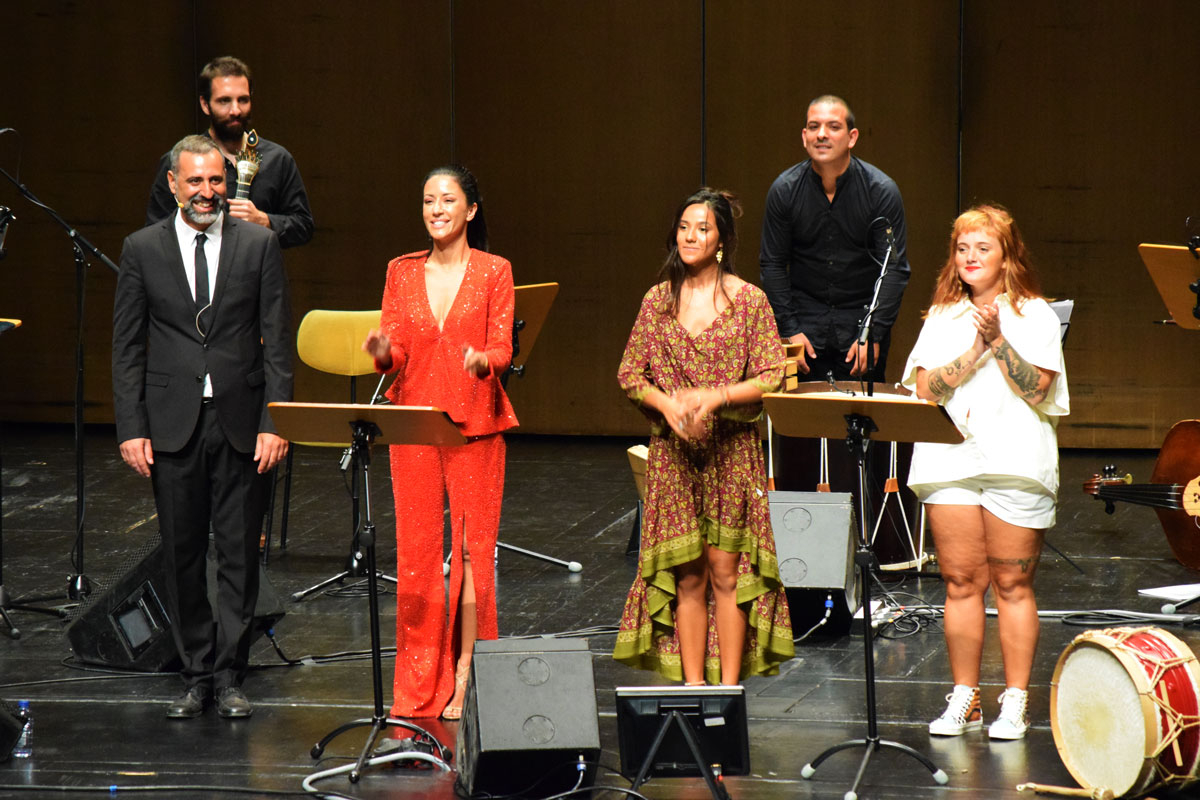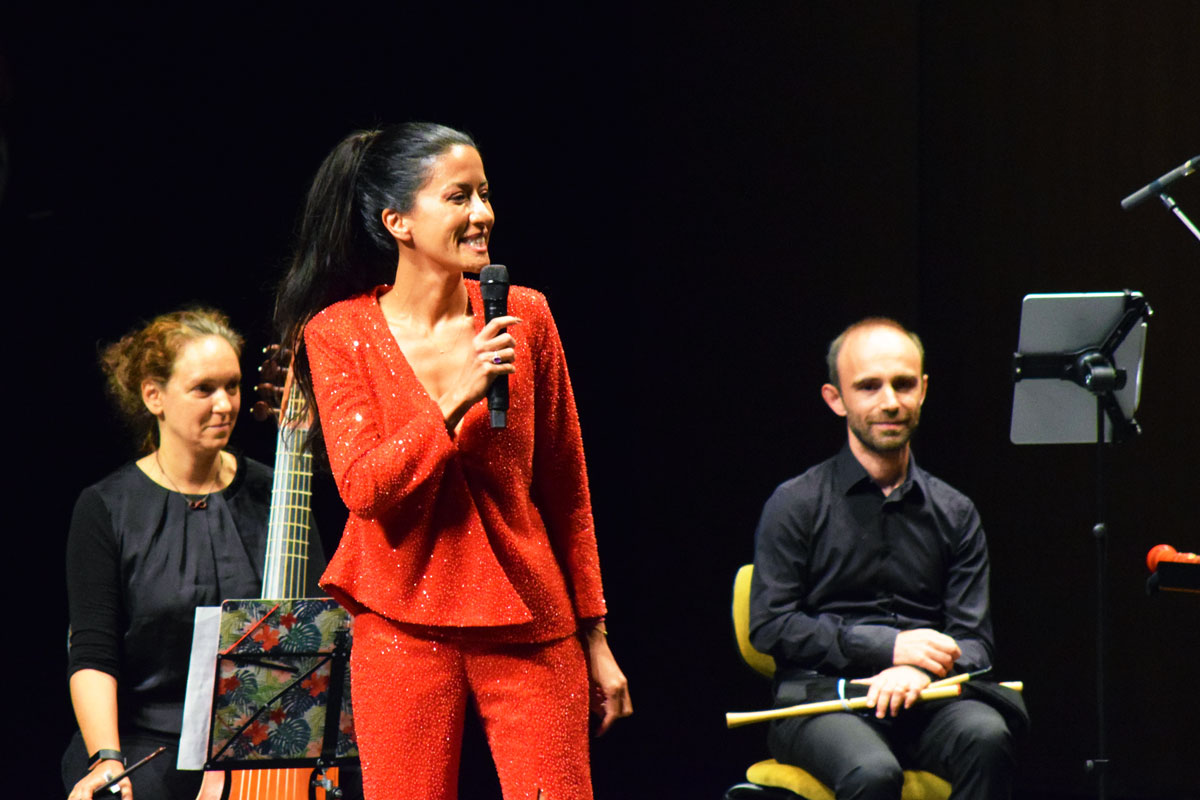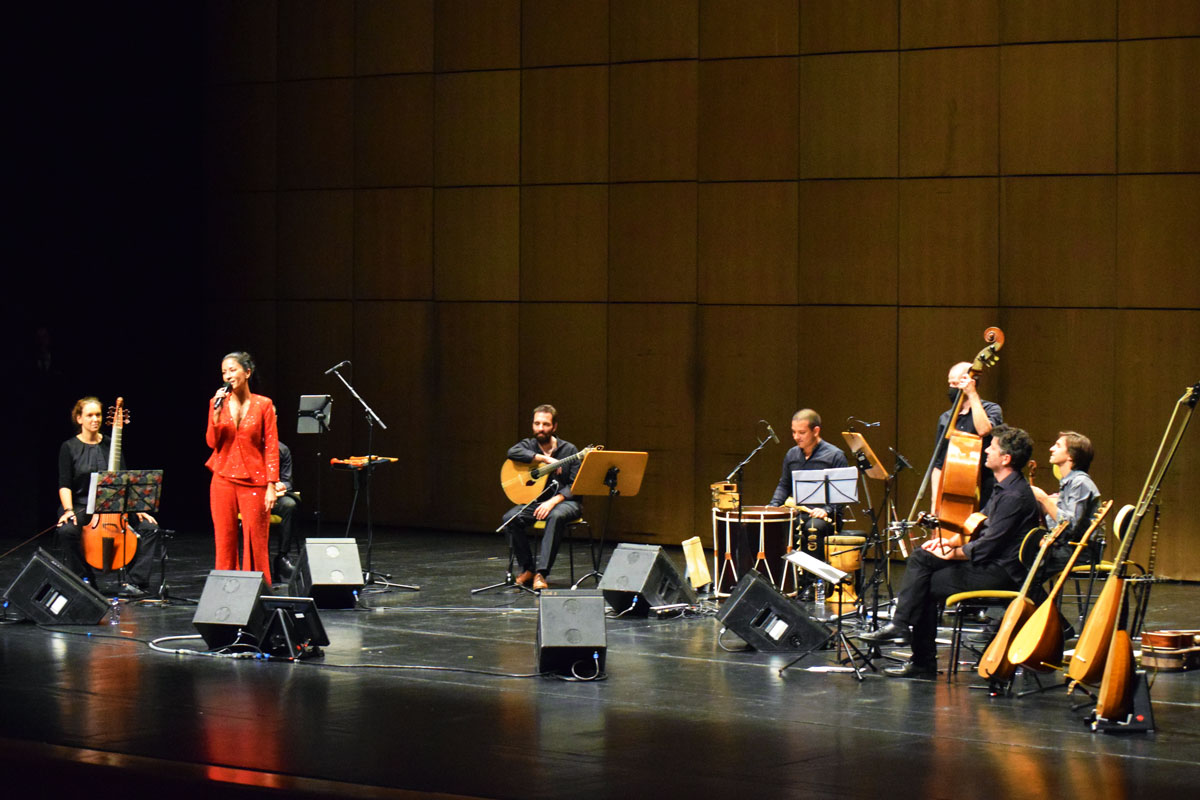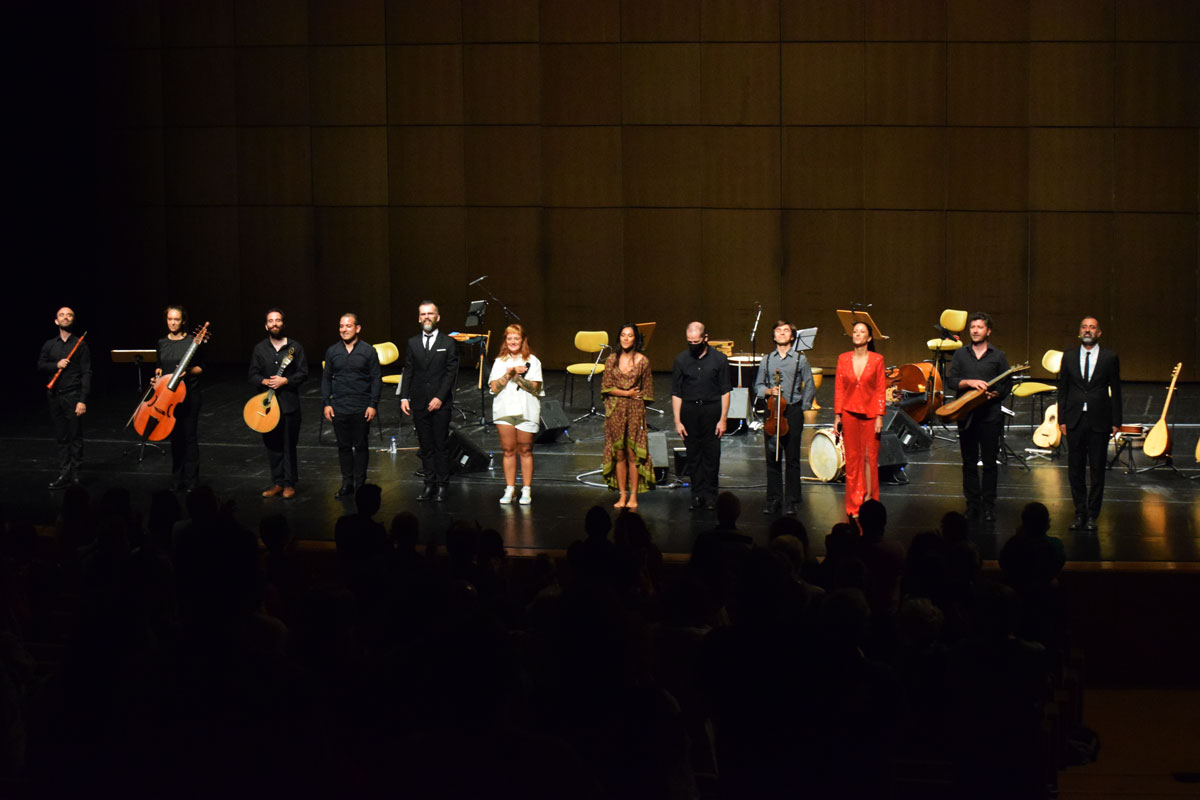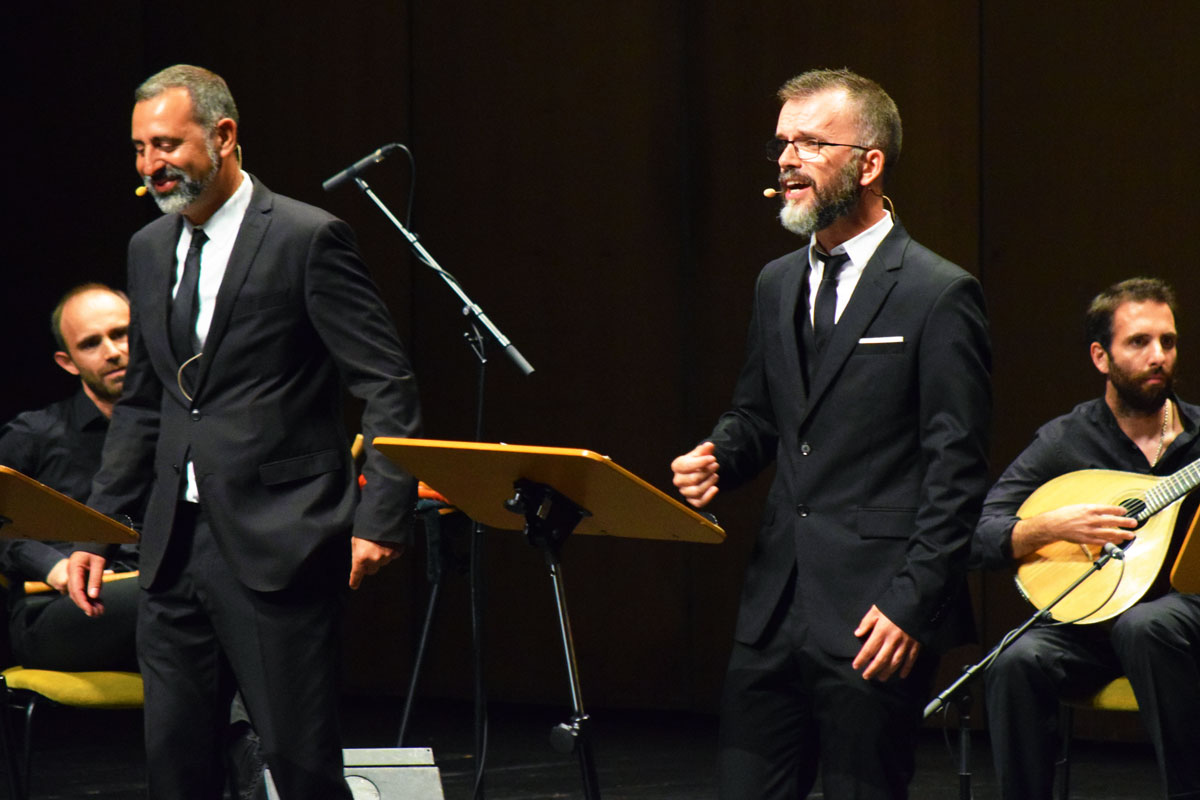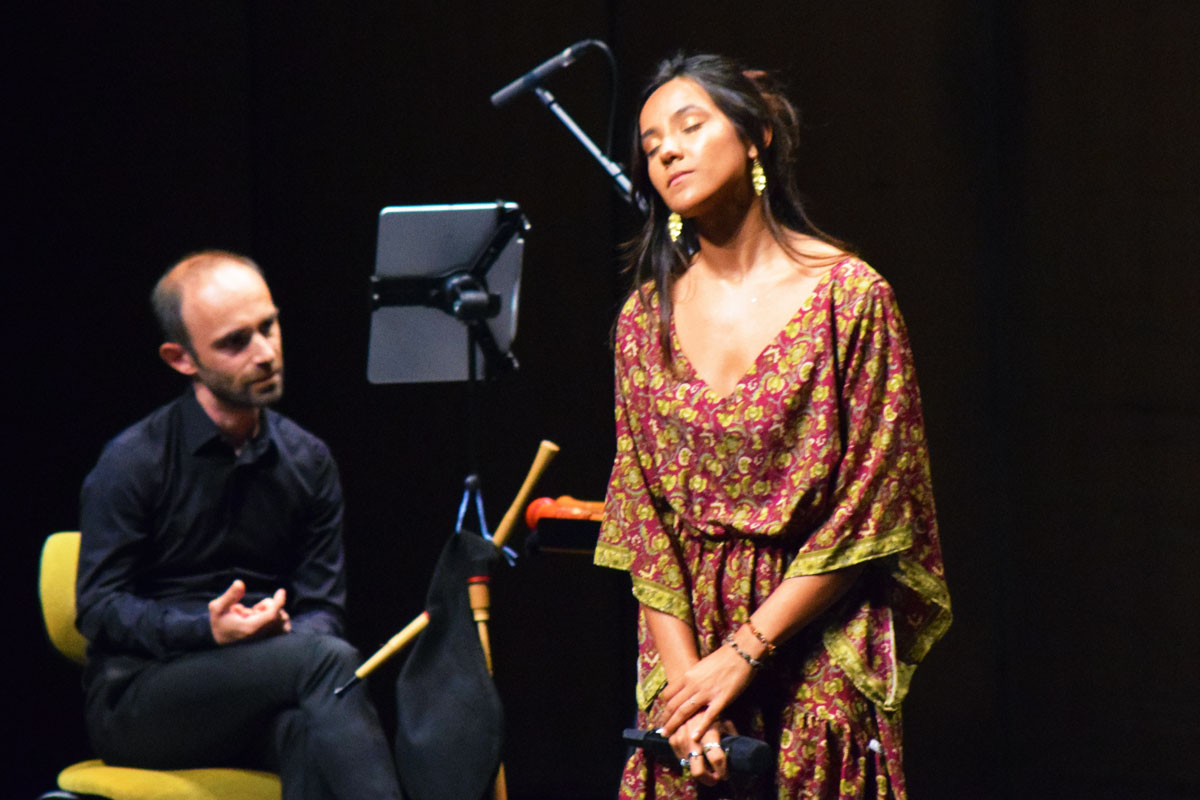The Sete Lágrimas went up to the main stage of the CCB, in a concert that should have been outdoors, but due to the wind, it changed the stage, and well, because it would have lost all those sounds and small harmonic details that made it excellent.
In the company of Ana Moura, Carolina Deslandes and the Brazilian Tainá, who on July 29th received the Play Prize award, in the Lusophony category, the Sete Lágrimas filled the CCB with antique music but also with crossovers, dialogues and meetings with the art of our times, Sete Lágrimas they opened a “suitcase” full of surprises with which they have asserted themselves, nationally and internationally.
In the words of Rui Vieira Nery, Musicologist – Universidade Nova de Lisboa / INET-md, “The Lusophony space continues to reveal itself as a fertile territory in intercultural expressions that testify to this multi-secular coexistence and mutual challenge between models from several continents, the results of which remain as living practices in the popular traditions of each region. What Sete Lágrimas proposes to us is a journey through written and oral repertoires, closer or more remote, sometimes more erudite and sometimes more popular, reflecting this experience of six centuries of intense artistic sharing in a world interconnected for the first time by Portuguese caravels and marked in the course of that long time by lights and shadows, pains and joys, violence and passion that Music bears witness to. ”
The Sete Lágrimas composed by Filipe Faria and Sérgio Peixoto, voice and artistic direction, Pedro Castro on flutes and baroque oboe, Denys Stetsenko on baroque violin, Miguel Amaral on Portuguese guitar, a new “acquisition”, was his second participation, Tiago Matias on guitar, baroque guitar and romantic guitar, Rui Silva on historical percussion, Sofia Diniz on “viola da gamba” and Mário Franco on double bass.
It was with “Parto triste saludoso” by an anonymous author (16th century), that Filipe Faria and Sérgio Peixoto entered on stage, followed by “Tururu farara con son” by Gaspar Fernandes (? 1565-1629), which transported us to other times.
“Rosinha dos Limões” by Artur Ribeiro (1924-1982), a song better known to the public, had new “outfits” with sounds, these instruments less usual on stage and the voice of Ana Moura, made this song even more beautiful.
“Oiga el que ignora” by Filipe da Madre de Deus (1626-?), followed by “Menina tem que tem” (Lundun), by an anonymous author (18th / 19th century) with the sweet voice of Carolina Deslandes, was a special moment on the night of the CCB, followed by “Flor Amorosa” by Joaquim António da Silva Calado (1848-1880).
Tainá entered the stage to sing “É tarde ela dorme” by an anonymous author (Brazil) and a theme that shined in her voice. The stage was then delivered to the fantastic and clear voices of Filipe Faria and Sérgio Peixoto in the themes “Bien podera my desperentura” by an anonymous author (16th century), “Prince Rupert’s March” by John Playford (1623-1686 / 7) with adaptation by Filipe Faria and Sérgio Peixoto, “No soy yo quien veis vivir” by an anonymous author (16th / 17th century) and “Quantas sabedes amar amigo” by Martim Codax (13th century).
Then comes the first moment when Sete Lágrimas accompanies Tainá in “Sonhos” in the first crossover moment, showing all the beauty of the sound of these instruments, as well as the great technical and artistic capacity of the musicians.
The themes “Mosé salió de Misraim” by an anonymous author (Morocco) and “Mis arreos son las armas” by Filipe Faria and Sérgio Peixoto were followed by “A vida toda”, the theme by Carolina Deslandes, who in the company of Sete Lágrimas dazzled in stage, in this version that according to the singer is one of the most beautiful versions of her music.
With the concert coming to an end, we still had time to listen to “Folias” de Gaspar Sanz (1640-1710), followed by a new crossover this time with Ana Moura and “Desfado”, a beautiful fado, in a fabulous voice and interpretation that in the company of Sete Lágrimas could only be more beautiful.
It was with “Eno sagrado en Vigo” by Martim Codax that the concert would have ended, but a surrendered audience did not let these fantastic artists leave without interpreting yet another song, “Canção do amor demais” by António Jobim / Vinicius de Moraes, was the choice, with everyone on stage on a memorable CCB night.


